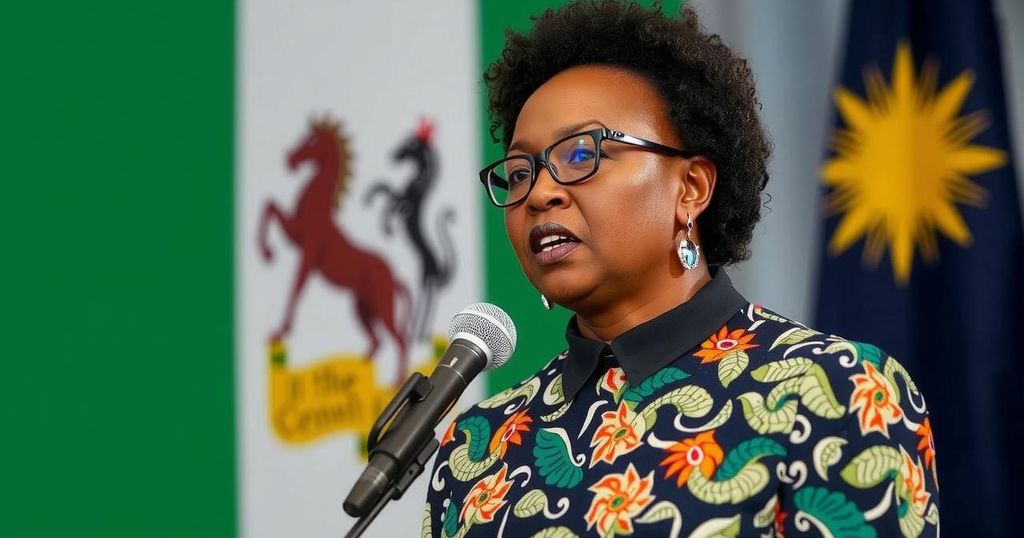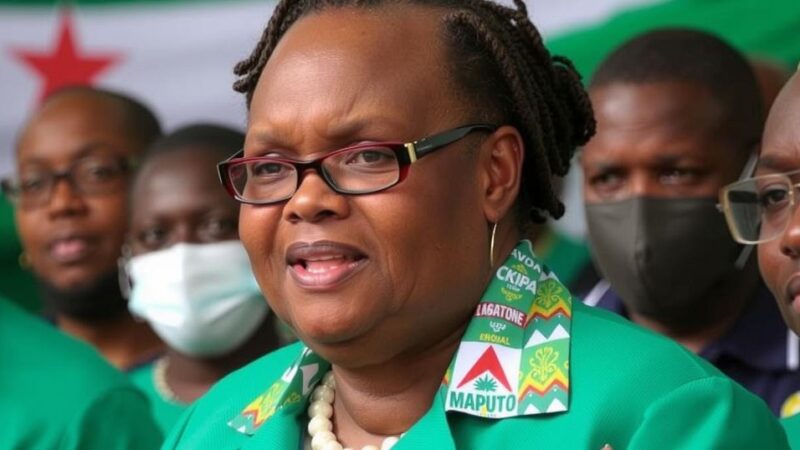Netumbo Nandi-Ndaitwah has been elected Namibia’s first female president, securing over 57% of the vote. She has a profound history of activism against oppression and has held various political roles advocating for women’s rights. Despite challenges to her victory from rival candidates, Nandi-Ndaitwah remains focused on leading Namibia towards economic growth.
Netumbo Nandi-Ndaitwah, commonly referred to as NNN, has significantly marked a milestone in Namibian history by becoming the nation’s first female president. At the age of 72, she achieved a resounding victory, securing over 57% of the votes against her closest contender, Panduleni Itula, who garnered 26%. This election victory encapsulates a life journey filled with remarkable experiences, including resistance against foreign occupation and advocating for women’s rights throughout her political career.
Born in 1952 in Onamutai, Nandi-Ndaitwah emerged as a prominent figure in Namibian politics after joining the Swapo liberation movement at the tender age of 14. Amidst escalating oppression from occupying forces, she was detained for her activism, prompting her to seek exile. Nandi-Ndaitwah worked diligently in Swapo’s ranks while abroad, eventually obtaining a degree in International Relations in the United Kingdom.
Upon Namibian independence in 1988, she re-entered her home country and quickly ascended the political ladder, holding various ministerial roles, including positions in foreign affairs and child welfare. As a staunch advocate for women’s rights, Nandi-Ndaitwah championed significant legislative changes, particularly the Combating of Domestic Violence Act in 2002, challenging the male-dominated political space in Namibia. Her recent appointment as vice-president in February further solidified her leadership status.
In both her personal and professional life, Nandi-Ndaitwah has exhibited a practical approach to governance, famously stating, “I am an implementer, not a storyteller.” Married to Epaphras Denga Ndaitwah, the former chief of Namibia’s defense forces, the couple has raised three sons. Despite challenges, Nandi-Ndaitwah remains committed to transforming Namibia’s economy as she assumes her presidential duties.
Netumbo Nandi-Ndaitwah’s election as Namibia’s first female president is a significant event in the context of the country’s political history. The country, which gained independence from South African rule in 1988, has been shaped by the contributions of prominent leaders like Nandi-Ndaitwah. Her longstanding association with the Swapo party, which she joined as a teenager during Namibia’s liberation struggle, reflects the resilience and commitment of those who fought for freedom and equality. The political environment of Namibia has historically been dominated by men, making her rise to the presidency especially notable. Nandi-Ndaitwah’s journey from a young activist facing arrest to a leading figure advocating for women’s rights illustrates her dedication to effecting change in a society that has grappled with sexism and traditional norms. Her educational pursuits abroad additionally highlight her commitment to understanding global dynamics that affect her country. The political climate has remained contentious, particularly following claims by opponents regarding the validity of the recent election results.
In conclusion, Netumbo Nandi-Ndaitwah’s election as Namibia’s first female president symbolizes a historic leap towards gender representation in the nation’s leadership. Her lifelong commitment to activism, particularly in the realms of women’s rights and governance, has paved the way for future generations of female leaders. Despite facing challenges from rivals questioning the electoral process, her determination to lead Namibia through economic transformation remains firm. As she embarks on this new chapter, Nandi-Ndaitwah carries the hopes and aspirations of many Namibians as they look forward to progress under her leadership.
Original Source: www.bbc.co.uk







